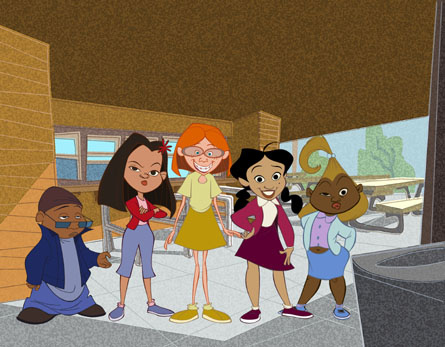It's Black History Month and I'm a black person who hates celebrating it. Don't get me wrong, I'm grateful for all the achievements that black people have made before and after I was born. However, the representation of black people in mass media doesn't reflect these contributions.
Most of the time, it shows stereotypes that are used for entertainment and ridicule. For me, Black History Month reminds me of what black people have done and what black people still need to do.
I'm not just a black person. I'm a half black and half Vietnamese college student, geek, poet, and voracious reader. I listen to very little rap and R&B, but I also have an eclectic music taste. I am more than just one personality trait, yet as a teen I was bullied by some of my black peers because I didn't "act black".
In the past, some of the black stereotypes included the Jezebel (slut), the minstrel(comedic buffoon), and the Sapphire (the angry black woman). Today, these stereotypes exist alongside others and they have created a negative impact on black youth.
For instance, Steve Urkel from the family sitcom Family Matters was a geek turned handsome and sexy when he became his alter-ego Stefan Urquelle. I didn't watch the entire show, but the message I got from this as a kid was that you'll only be accepted if you're attractive and sexy.

In high school, I noticed that even though that there were other black girls and guys who made good grades, they didn't get bullied because they were attractive and acted "black" enough to fit in or they didn't try to stand out.
The bullying I endured combined with other personal problems to make me feel worthless, depressed, and eventually suicidal. I felt like I was the only black teen at my school who was different and that I had no place to be accepted. For some comfort, I found other outsiders in books like The Harry Potter series and animated shows like Teen Titans.
Due to the media's emphasis on sports and entertainment, the only contributions that some of my black peers focused on in high school was making music or being an athlete.
In addition, some girls with no self-respect dressed provocatively and let guys treat them badly for acceptance. Also, guys acted funny or dumb and imitated male rappers for acceptance.
Whether they were conscious of it or not, they were embodying stereotypes. If it frustrated them too much, then they dropped out of school, took it out on me for fun, or took it out on each other in anger.
I noticed all this at my high school when I read an article in Atlanta's teen newspaper VOX. The article was written by a black student from another school when Barack Obama got sworn in as president for the first time.
The student commented on how he saw some of his black peers act and how it was a shame that they lacked self-worth, self-respect, and drive even though we had a black president now.
His words were cemented into my brain when I watched one of my bullies become the bullied in class one day. The bullied bully was a black girl and her bully was a black boy. At the time, I didn't know what to say about it, but now I do.
Despite the fact that musicians like Janelle Monae and Michael Jackson have incorporated multiple genres, some people still expect black people to only do and listen to certain genres.
Despite the fact that there are black people in different types of families, most black kids depicted in mass media come from only broken or middle class homes.
This isn't the fault of any one race, nor is a problem for just one race. Some white people may have made those stereotypes, but some black people keep enforcing them and teaching them to new generations.
In addition to blacks, Hispanics and Asians also have stereotyping problems. When I was in middle school, there was a Disney Channel animated series on t.v. called The Proud Family. While there were racially diverse teenage characters, many of them were stereotyped.

While whites have also been stereotyped, they have a wider variety of people in mass media than other races. In young adult literature, there are many well developed white characters such as geeks, disabled people, and gay people. However, there have been few black characters like this.
The solution involves more than just having more black people in mass media. After all, The Proud Family was created by a black man.
Instead, black people who are supportive of those who don't fit stereotypes and black people who refuse to be a stereotype should work together to make mass media better. We may be black, but we have shades, tints, and hues inside and out.

